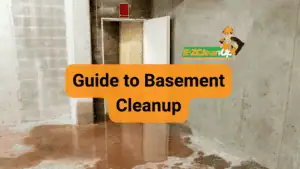When embarking on a home improvement project in Pennsylvania, one of the most critical decisions you’ll make is choosing the right contractor. With construction being a multi-billion dollar industry and home improvement projects representing significant investments for homeowners, understanding what a Pennsylvania contractor’s license signifies can be the difference between a successful renovation and a costly nightmare.
Understanding Pennsylvania’s Unique Contractor Licensing Landscape
Unlike many other states, Pennsylvania currently has no licensure or certification requirements for most construction contractors at the state level. Pennsylvania is a commonwealth, so its oversight on contractor licensing is minimal compared to other states. However, this doesn’t mean contractors operate without oversight or consumer protections.
The reality is more nuanced. The only two contractors that need state-issued licenses are crane operators and asbestos and lead removal contractors. For most home improvement contractors, Pennsylvania takes a different approach through registration requirements and local municipal licensing.
The Home Improvement Consumer Protection Act (HICPA): Your Safety Net
Registration Requirements and Consumer Benefits
In 2008, Pennsylvania revolutionized consumer protection in the construction industry with the passage of the Home Improvement Consumer Protection Act (HICPA). The law requires that all contractors who perform at least $5,000 worth of home improvements per year register with the Attorney General’s Office.
This registration requirement is significant for customers because it creates accountability and transparency. Over 70,000 contractors are currently registered with the Bureau under HICPA. This massive database gives customers access to verified contractor information and provides a mechanism for complaint resolution.
What Registration Means for You as a Consumer
When a contractor is registered under HICPA, it signifies several important protections for customers:
1. Financial Accountability
Registered contractors must provide insurance policy information showing at least $50,000 of personal injury liability coverage and $50,000 of property damage coverage. This insurance requirement ensures that if something goes wrong during your project, there’s financial protection in place.
2. Background Verification
The registration process requires contractors to disclose “background disclosures, including information on prior bankruptcies and criminal pleas or convictions.” This transparency allows customers to make informed decisions about who they’re hiring.
3. Contract Protections
HICPA establishes minimum insurance requirements for contractors; requires contractors to provide their registration number in their ads and contracts; establishes required contract terms for home improvement contracts; prohibits unfair business practices; and creates a criminal penalty for home improvement fraud.
Local Municipal Licensing: The Additional Layer of Protection
While state-level licensing is limited, some of Pennsylvania’s 2,562 municipalities have established local licensure or certification requirements for contractors or construction trades people. Typically, these requirements pertain to home improvement contractors, electrical contractors (or electricians), and plumbing contractors (or plumbers).
Major Cities’ Requirements
Philadelphia Requirements
In Philadelphia, contractor licenses must be renewed annually and contractors must be current on all City of Philadelphia taxes and fines, have proof of an active insurance policy, and have eligible supervisor information on file. This creates additional layers of verification and ongoing oversight.
Pittsburgh Standards
In Pittsburgh, a General Contractor license is required for any work that requires a commercial building permit, as well as for the construction of one- and two-family dwellings. The city maintains strict oversight to ensure contractor compliance.
The Statistics Behind Contractor Fraud and Why Licensing Matters
Understanding the prevalence of contractor fraud helps illuminate why Pennsylvania’s registration system is so important for consumers.
Fraud Statistics and Trends
The data on contractor fraud in Pennsylvania is sobering. From 2017 to 2019, annual hail loss claims in Pennsylvania increased from 15,154 to 31,635. While many of these are legitimate, the marked increase suggests that the dishonesty of some PA contractors is reflected in the statistics.
Recent enforcement actions demonstrate the scope of the problem. Attorney General Josh Shapiro announced that his Bureau of Consumer Protection filed 35 legal actions in 17 counties across Pennsylvania involving home improvement contractors as part of a statewide home improvement initiative from October 2018-April 2019.
Criminal Penalties for Violations
Pennsylvania takes contractor fraud seriously, with substantial criminal penalties that underscore the importance of working with registered contractors. Home improvement fraud can be a misdemeanor crime, or it can be a felony, depending on the dollar value of the contract or payment involved. When a contract or payment is less than $2,000, the offense is charged as a misdemeanor. When the amount exceeds $2,000, it’s charged as a felony.
The penalties are severe: A first-degree misdemeanor is punishable by up to 5 years in prison and a fine of up to $10,000. A third-degree felony is punishable by up to 7 years in prison and a fine of up to $15,000.
How to Verify Your Contractor’s Credentials
Step-by-Step Verification Process
1. Check Registration Status
To verify the registration of a home improvement contractor, go to the Registered Contractors section of the Attorney General’s website. You can also verify a contractor’s registration number by calling toll-free 888-520-6680.
2. Review Public Records
Disciplinary actions and complaints against licensed home improvement contractors are publicly available in Pennsylvania through the Home Improvement Contractor Search database on the Pennsylvania Attorney General’s website. This database allows users to search for specific contractors and view any past disciplinary actions or complaints filed against them. The information available may include the nature of the violation, any penalties or fines imposed, and whether the complaint was resolved.
3. Verify Insurance Coverage
Ensure your contractor meets the minimum insurance requirements and ask to see current certificates of coverage.
What Red Flags to Watch For
Unregistered Contractors
Engaging in work without being registered with the Attorney General’s Office is a violation that carries a fine of $1,000 or more. If a contractor cannot provide their registration number, this is a major red flag.
Common Scam Tactics
If contractors offer to increase your estimate to include repair of damages not caused by the storm or propose to inflate the total to rebate back your policy deductible, you likely have a scammer in your midst.
Many fraudulent contractors go door-to-door in neighborhoods that have been hit by hail, looking for their next victim to take advantage of. Anxious to have their damage repaired, many homeowners fail to see the warning signs of fraud.
The Legal Framework That Protects You
Contract Requirements
Pennsylvania law provides extensive protections through mandatory contract requirements. Under the Home Improvement Consumer Protection Act, every contract for home improvements needs to be written, legible and signed by the consumer and the contractor. All contracts for home improvements of more than $500 must be in writing and include important provisions like a description of the work; an approximate start date and completion date; the total price of the contract.
Right of Rescission
In Pennsylvania, homeowners have three business days from the date the contract was signed to rescind it — and a notice of these rights must be stated in the contract. This cooling-off period allows homeowners to reconsider their decisions without penalty.
Prohibited Contract Terms
Pennsylvania law protects consumers by prohibiting certain unfair contract terms. Specific provisions that cannot be included in contracts include confession of judgment clauses, assignment of wages, provisions that the contractor shall be awarded attorney fees & costs, and clauses that relieve the contractor from liability for acts committed by the contractor.
The Value of Working with Licensed/Registered Contractors
Professional Standards and Accountability
Registering as a home improvement contractor not only ensures compliance with state regulations but also enhances credibility in the eyes of consumers. It demonstrates a commitment to transparency and accountability, building trust and potentially leading to more business opportunities.
Quality Assurance
By adhering to the Home Improvement Contractor Registration requirements, contractors in Pennsylvania showcase their dedication to professionalism and consumer protection. This registration becomes a valuable asset, reflecting the business’s integrity and commitment to quality service.
Recourse When Things Go Wrong
Registered contractors provide customers with clear channels for complaint resolution. Consumers can file complaints against unlicensed home improvement contractors in Pennsylvania. The Office of the Attorney General has a Bureau of Consumer Protection that is responsible for handling consumer complaints related to home improvements, including those involving unlicensed contractors. Complaints can be filed online or by calling their toll-free hotline at 800-441-2555.
Industry Statistics and Market Context
Economic Impact
In the Western Pennsylvania and Northern Pennsylvania non-metropolitan areas, the average annual wage for general contractors is $119,030 and $116,990, respectively. This data illustrates the significant economic role contractors play in Pennsylvania’s economy.
Employment Statistics
There are 520,900 construction managers and 1,599,800 construction laborers and helpers nationwide according to the Bureau of Labor Statistics (BLS). Pennsylvania employs 3,550 managers and 39,370 laborers and helpers.
The projected growth in the industry is substantial: The national number for managers is projected to grow 9% from 2023 to 2033 and 8% for laborers and helpers. In Pennsylvania, according to CareerOneStop, the projected growth rate for laborers is 5%, and for managers it’s also 5%.
Special Considerations for Different Types of Work
State-Licensed Specialties
While most contractors only need registration, certain specialties require full state licensing:
Crane Operators
The Crane Operator Licensure Act was signed into law in 2008. This act establishes a Crane Operators Board and licensure requirements for crane operators.
Asbestos and Lead Removal
In order to comply with federal mandates, the State of Pennsylvania certifies contractors and workers that perform asbestos and lead removal services.
Municipal Variations
It’s important to understand that requirements can vary significantly by location. Pennsylvania has very few state-level licensing regulations and largely leaves contractor licensing up to individual counties and municipalities — which there are many, with varying requirements by trade.
Taking Action: Your Next Steps
Before Hiring Any Contractor
- Verify Registration: Always check the contractor’s registration status with the Attorney General’s office
- Review Public Records: Search the contractor database for any complaints or disciplinary actions
- Confirm Insurance: Ensure the contractor carries adequate insurance coverage
- Get Multiple Bids: Solicit multiple bids for the work you need. Make sure each contractor is submitting bids according to the same home improvement project plans.
- Check References: Thoroughly check your contractor’s references. Obtain more than one bid for the job. Check for complaints filed with the Better Business Bureau.
If Problems Arise
Pennsylvanians who believe they have been the victim of a home improvement contractor or disreputable business practices should contact the Office of Attorney General’s Bureau of Consumer Protection at 1-800-441-2555 or by email at [email protected] or visit www.attorneygeneral.gov to file a complaint.
Conclusion: Knowledge is Your Best Protection
Understanding what a Pennsylvania contractor’s license or registration signifies empowers you to make informed decisions about your home improvement projects. While Pennsylvania’s approach to contractor oversight may differ from other states, the combination of HICPA registration requirements, local municipal licensing, and robust consumer protection laws creates a comprehensive framework designed to protect homeowners.
The statistics are clear: contractor fraud is a real problem, but working with properly registered contractors and understanding your rights significantly reduces your risk. HICPA is designed as consumer protection, and it is expected the courts will liberally construe the Act in favor of consumers. Therefore, strict compliance by contractors is required.
Remember, “Registration under HICPA is not an endorsement, recommendation or approval by the Office of Attorney General of the contractor’s competency or skill.” However, it does provide essential baseline protections and accountability measures that every homeowner should insist upon.
By taking the time to verify your contractor’s credentials, understand your legal protections, and recognize warning signs of fraud, you’re taking the most important step in ensuring your home improvement project’s success. The investment in due diligence pays dividends in peace of mind and project outcomes.
References:
- Pennsylvania Contractor Licensing Guide – Procore
- Contractor Licensing – Pennsylvania Department of Labor and Industry
- Home Improvement Contractor Registration – PA Office of Attorney General
- Get a Contractor License – City of Philadelphia
- Attorney General Josh Shapiro Takes Legal Action against 35 Home Improvement Contractors – PA Office of Attorney General













